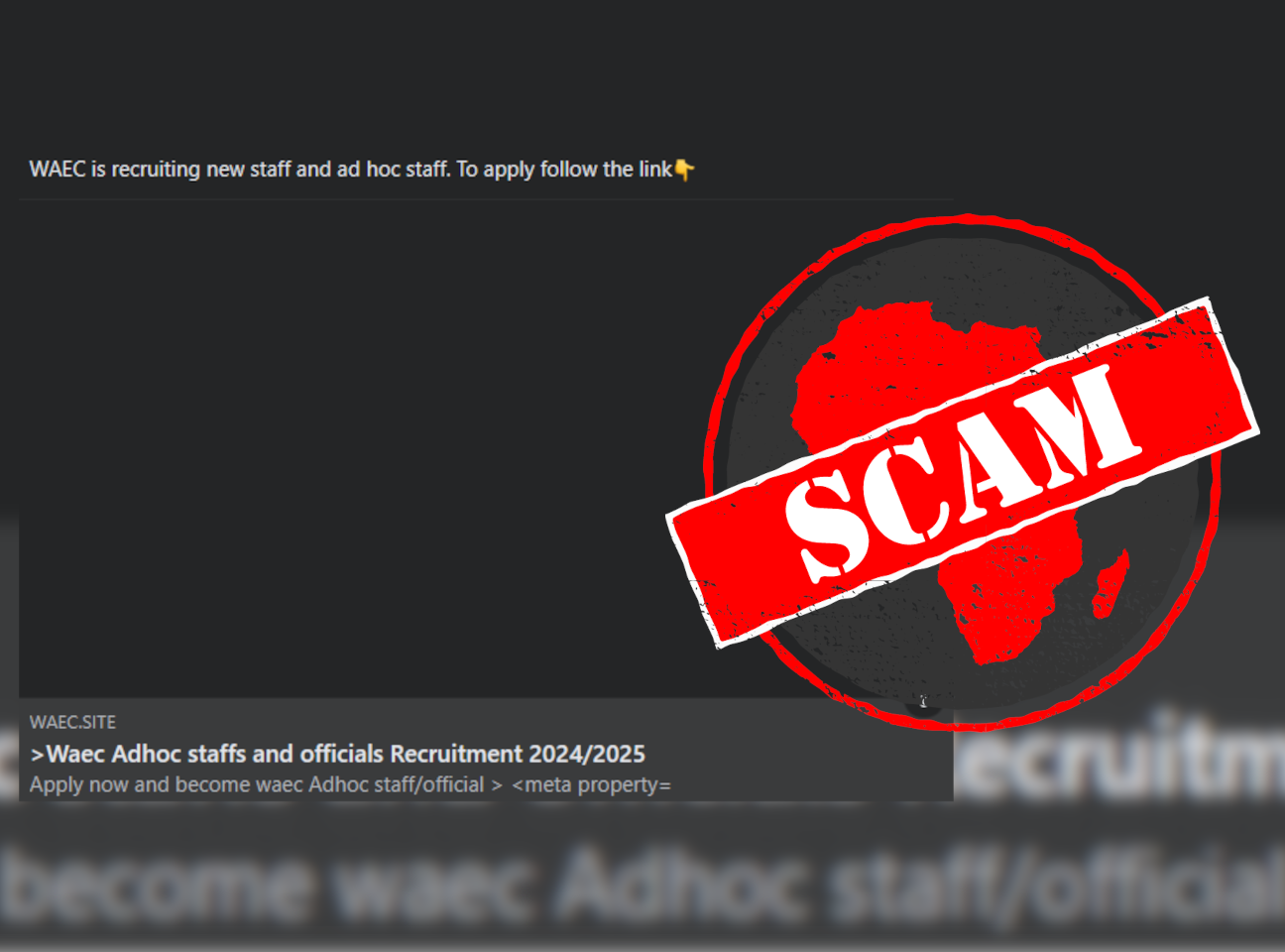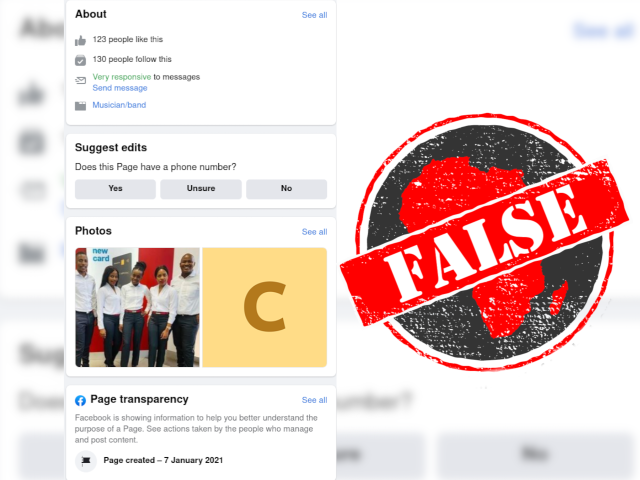IN SHORT: The West African Examination Council has warned the public against a fake recruitment ad circulating in its name.
A message doing the rounds on Facebook in Nigeria claims that the West African Examination Council, or WAEC, is recruiting staff for 2024/25.
The WAEC is a body set up to run exams in English-speaking countries in West Africa and to award certificates comparable to those given by other international exam boards. It has its headquarters in Ghana.
The message reads “WAEC is recruiting new staff and ad hoc staff. To apply follow the link👇” and includes a link.
Other instances of the claim are posted here, here, here, here, here and here.
But is the WAEC recruiting? We checked.

‘Fake job advert’ says WAEC Nigeria
Africa Check searched the WAEC websites for Nigeria and Ghana and the examination board’s X account but found no evidence of any recruitment exercise.
On 19 April, the WAEC for Nigeria posted a disclaimer on X to say the job ad was fake.
It reads, in part: “The council would like to state categorically that the advert did not emanate from us and thereby dissociates itself from the fake job advert being circulated by unscrupulous individuals whose schemes are to defraud unsuspecting job seekers.”
It adds that its recruitment processes are “exclusively advertised through the daily newspapers”, official websites and social media accounts.
For more tips on how to identify job scams and avoid falling for one, read our guide.
Republish our content for free
For publishers: what to do if your post is rated false
A fact-checker has rated your Facebook or Instagram post as “false”, “altered”, “partly false” or “missing context”. This could have serious consequences. What do you do?
Click on our guide for the steps you should follow.
Publishers guideAfrica Check teams up with Facebook
Africa Check is a partner in Meta's third-party fact-checking programme to help stop the spread of false information on social media.
The content we rate as “false” will be downgraded on Facebook and Instagram. This means fewer people will see it.
You can also help identify false information on Facebook. This guide explains how.





Add new comment